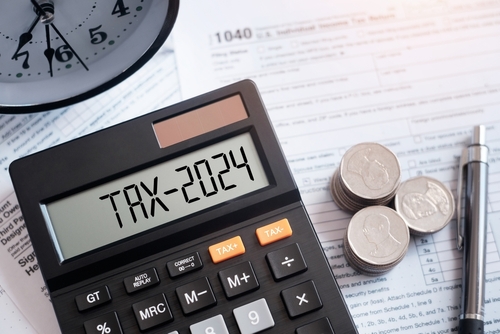Republicans gear up for aggressive tax reform agenda in anticipation of Trump’s potential return to the White House.
Republican Tax Reform Strategy
As the possibility of Donald Trump’s return to the presidency looms, Republican lawmakers are crafting an ambitious tax reform agenda. The GOP’s strategy centers on renewing $4 trillion in expiring tax provisions, reducing corporate tax rates, and eliminating tips and overtime pay taxes. This comprehensive plan aims to stimulate economic growth while addressing federal deficits and economic disparities.
Having won the election and sweeping to power, Republicans are planning an ambitious 100-day agenda with President-elect Donald Trump in the White House and GOP lawmakers in a congressional majority to accomplish their policy goals.
Read more here: https://t.co/dlcdS9xmEO
— Stars and Stripes (@starsandstripes) November 30, 2024
House Majority Leader Steve Scalise, R-La., emphasized the urgency of their agenda, stating, “What we’re focused on right now is being ready, Day 1.” The GOP intends to hit the ground running, potentially leveraging the reconciliation process to pass their agenda without facing a Senate filibuster.
Atop that list is a plan to renew some $4 trillion in expiring tax cuts that were a signature domestic achievement of Republican Donald Trump's first term as president. https://t.co/X2C6ZNEWyy https://t.co/X2C6ZNEWyy
— ABC7 News (@abc7newsbayarea) November 30, 2024
Key Components of the Tax Plan
At the heart of the Republican tax reform agenda is the 2017 Trump tax law extension, which would prevent $3.3 trillion in tax breaks from expiring in 2025. The plan also includes lowering corporate tax rates from 35% to 20%, which supporters argue will boost economic growth and job creation.
“If you’re just extending current law, we’re not raising taxes or lowering taxes,” said incoming Senate Finance Committee Chairman Mike Crapo, R-Idaho.
However, critics argue that these tax cuts primarily benefit the wealthy and could exacerbate income inequality. The Congressional Budget Office estimates extending the expiring provisions would add $4 trillion to the national deficit over a decade.
Challenges and Criticisms
The ambitious tax reform agenda faces significant challenges and criticisms. Democrats and some economic experts argue that the plan disproportionately benefits the wealthy and corporations while potentially increasing the national debt.
“The bill is investing heavily in the wealthy and their children,” said Lily Batchelder, a tax law professor at New York University.
Concerns have been raised about the proposed tax cuts’ long-term effects. By 2027, the impact is expected to be even more unequal, with individual tax breaks expiring while corporate tax cuts remain. This could further widen the income gap in the United States.
Political Implications
The Republican tax reform agenda has significant political implications, potentially shaping the economic landscape for years. With the 2024 election on the horizon, the GOP is positioning itself as the party of economic growth and job creation through tax cuts.
“Americans don’t care if Elon Musk is rich. What they care about is, what are you doing to make their lives better?” said Avik Roy, president of the Foundation for Research on Equal Opportunity.
However, the plan faces opposition from Democrats, who argue it primarily benefits the wealthy at the expense of the middle class and future generations. The debate over tax policy will likely be a central issue in the upcoming election, with both parties offering starkly different visions for America’s economic future.
Sources:
https://www.vox.com/policy-and-politics/2017/12/2/16720952/senate-tax-bill-inequality
https://www.newsweek.com/inside-republican-war-over-trump-tax-cuts-1976370
https://yournews.com/2024/12/01/2899095/gop-sets-sights-on-sweeping-tax-cuts-in-ambitious-100-day/
https://www.washingtontimes.com/news/2024/nov/30/trump-republicans-congress-eye-ambitious-100-day-a/

